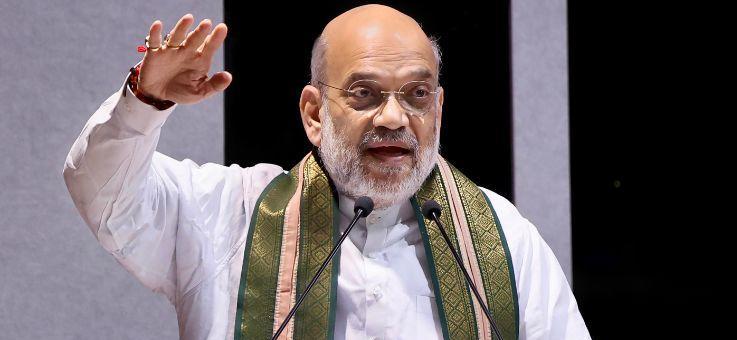
CAA: Concern over India’s notification of rules raised by USCIRF
text_fieldsNew York: Concerned over the Indian government's notification of guidelines to implement the Citizenship (Amendment) Act (CAA), the US Commission on International Religious Freedom (USCIRF) stated that no one should be refused citizenship due to their religion or beliefs.
Rules for implementation of the contentious Citizenship (Amendment) Act, 2019 (CAA) were notified earlier this month, paving the way for granting citizenship to undocumented non-Muslim migrants from Pakistan, Bangladesh and Afghanistan.
“The problematic CAA establishes a religious requirement for asylum seekers in India fleeing neighbouring countries,” USCIRF Commissioner Stephen Schneck said in a statement Monday.
Schneck said that while CAA provides a fast track to citizenship for Hindus, Parsis, Sikhs, Buddhists, Jains and Christians, the law explicitly excludes Muslims.
While critics have questioned the government over the exclusion of Muslims from the Act, India has strongly defended its move.
“The CAA is about giving citizenship, not about taking away citizenship. It addresses the issue of statelessness, provides human dignity and supports human rights,” External Affairs Ministry spokesperson Radhir Jaiswal said recently, asserting that the law is an internal matter of India.
India in the past has also dismissed USCIRF’s locus standi to comment on India’s human rights record.
In his statement, Schneck said, “If the law were truly aimed at protecting persecuted religious minorities, it would include Rohingya Muslims from Burma, Ahmadiyya Muslims from Pakistan, or Hazara Shi’a from Afghanistan, among others. No one should be denied citizenship based on religion or belief,” he said.
However, India’s Home Ministry says Muslims from these countries are also free to apply for Indian citizenship under the existing laws.
Last week, Schneck testified at a Tom Lantos Human Rights Commission hearing on this issue.
With the CAA rules being issued, the Modi government will now start granting Indian nationality to persecuted non-Muslim migrants from Bangladesh, Pakistan and Afghanistan who came to India till December 31, 2014. These include Hindus, Sikhs, Jains, Buddhists, Parsis and Christians.
The CAA was passed in December 2019 and subsequently got the president’s assent but there were protests in several parts of the country against it.
USCIRF urged members of the US Congress to continue to “publicly call out religious freedom issues in India, and to include religious freedom in discussions with government counterparts and importantly, during congressional delegations.” USCIRF Commissioner David Curry said that as the State Department recently noted, respect for religious freedom and equal treatment under the law for all communities are fundamental democratic principles.
“USCIRF urges the US government to work with Indian authorities to release the human rights activists arbitrarily detained that advocated for religious minorities,” Curry said.
India has previously said that the Commission continues to regurgitate such comments and India rejects the “misrepresentation of facts” which only serves to “discredit USCIRF itself”.
India has also asked USCIRF to develop a better understanding of India, its plurality and its democratic ethos.
USCIRF is an independent, bipartisan federal government entity established by the US Congress to monitor, analyse, and report on religious freedom abroad.
Meanwhile, the Foundation for India and Indian Diaspora Studies (FIIDS), which focuses on policy studies, analysis, advocacy and awareness related to India and the Indian Diaspora, said that based on the “factual analysis” of CAA, the provision in question aims to grant citizenship to persecuted religious minorities from India’s three neighbouring Islamic countries.
“Contrary to misconceptions, it does not involve depriving or revoking the citizenship of or deporting Muslims in India. Therefore, it could aptly be called the “Act for Expedited Citizenship for Religious Minority Persecuted”,” FIIDS said.
“We trust that the USCIRF, other agencies and interested entities will find this information on CAA appropriate and find CAA directly addresses some of the concerns raised by the USCIRF regarding the situation of minorities in Afghanistan, Bangladesh, and Pakistan,” it said.
With PTI inputs






















